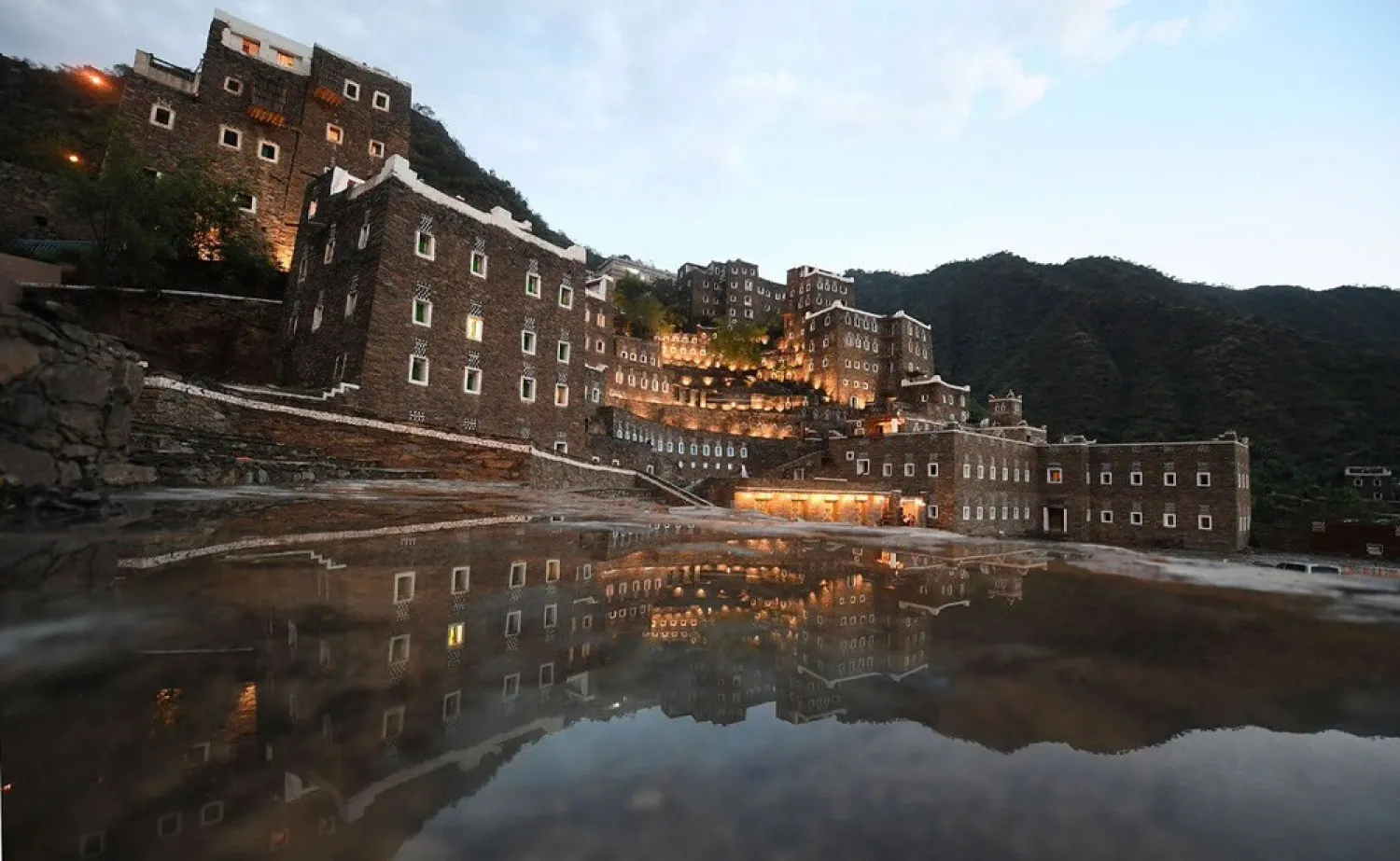The al-Qatt al-Asiri, an art used to embellish walls of houses in Asir province in southwestern Saudi Arabia has jumped from the physical to the virtual world. The “Qatt XR” project that focuses on the art of Qatt al-Asiri aims to document and preserve the Saudi cultural and natural heritage by using digital photography, 3D simulations, location information, and open access solutions.
“The project’s idea came after the UNESCO added the Qatt al-Asiri on its Intangible Cultural Heritage List, which prompted us to think how we can make this art reach the largest audience around the world. The project aims to provide data, and 3D models for regional institutions, museums, researchers and fans,” Dr. Haifaa al-Hababi, member in the project, told Asharq Al-Awsat.
Contributors of the Qatt al-Asiri project include Areej al-Wabel, Haifa al-Hababi, Leila al-Babtain, and Abdullah Mshantat. Qatt al-Asiri was selected by the King Abdulaziz Center for World Culture-Ithra among the five best projects partaking in the Creative Solutions Program.
“Creating digital models of the Qatt al-Asiri could help introduce it to younger generations, and make it easier to use, given its complexity and the expertise it requires. Digitizing this art has become more important after the pandemic, which proved to the world the importance of digitization for access and reach,” she explained.
During the interview, Hababi highlighted the experiences of museums and historic landmarks that went digital to survive the pandemic and its restrictions, noting that Virtual Reality (VR) has become a trend.
“It’s one of the most sophisticated experiences that we can offer to promote our heritage, and we still have a lot to give using this technique,” she added.
The King Abdulaziz Center for World Culture-Ithra selected this project from the “Creation of Efficient Digital Content” category. The center plans to financially support, develop, and commercialize the qualified projects, which have shown a remarkable diversity in the traditional Saudi designs.
The Creative Solutions Program, which incubates creative projects, has been designed to build a generation of creators, support the growth of creative economy in the country, along with focusing on using modern technologies, such as Artificial Intelligence (AI), touch control, and VR and AR (augmented reality).
The Qatt al-Asiri project was selected alongside five other projects out of 26 that participated in the first phase of the program. The candidates made presentations of creative products, and spent weeks attending courses, workshops and meetings with experts in this field.
In its third phase, the program plans an international virtual training camp that provides individual instructions and keeps up with the progress made in the projects, in addition to providing concentrated support and cooperation to promote each project within three months, commercializing the product and financially supporting each project with up to 75,000 SAR.









